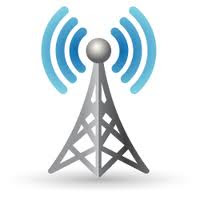Roll Over or Get Tough - It is That Time Again

Once again, the Glasgow EPB, is facing some difficult decisions about our cable system. Every three years we, along with every other cable system in America, must negotiate with the broadcasters in our area (ABC, CBS, NBC, Fox, and CW) to be able to deliver their signals to your homes. We are now in that negotiating period and it appears that this might be a tedious, and possibly very costly, process during this term. In fact, some of the early offers from the broadcasters have them trying to extract 100% to 400% increases in what you ultimately pay for their programming.
Just so you will understand this process, here is a quick summary for what is a very complicated matter. The programming on EPB’s cable service is provided in three different ways. EPB Cable6, the GHS Advantage Channel, and the BCHS Trojan TVare all local origination, meaning that everything that is seen on this channel is produced either through the EPB, GHS or BCHS. The overwhelming majority of other channels are purchased. Let us repeat that fact – all channels that you view, other than the three local origination channels and a very small percentage of “less popular” channels, are on our system only because we pay a monthly fee to some distant company based upon our total number of cable subscribers.
The majority of the channels (Fox News, CNN, ESPN, TNT etc.) are delivered via satellite. If you have passed by our building, you may have noticed the huge satellite dishes behind our main office used for this purpose. This technology works very well and is usually only interrupted twice a year when the satellite receiver, the satellite 24,000 miles out in space, and the sun, all line up for a few hours. This is what is called solar outages, and unfortunately there is no solution for this problem for the EPB or the thousands of other cable services who all experience the same disturbances.
This leaves us to the final method of delivery – broadcast – which is the real reason for this discussion. This is the most common delivery system since it has been available even before cable television was invented. For those of you who can remember, homes used to have antennas and, depending on how you set your antenna, or could convince someone to go outside and move the antenna, a broadcast station such as WBKO or WTVF would magically appear on your television. Of course, it was sometimes poor quality signal, particularly when attempting to pick up signals from distant Louisville or Nashville stations.
Today things are much different. The signals are now converted to digital signals and processed through local cable systems. While the digital system usually provides far better picture quality, there are still problems if the cable system reception system is located more than 50 miles from the transmitter for the broadcast signal. Since we are more than twice that distance from Louisville and Nashville, we try to compensate by placing very sophisticated antennae on top of a very, very tall tower. However, even those measures sometimes just aren’t enough. Digital signals either come through perfectly, or they simply don’t come through at all, leaving you with nothing but a frozen image or the dreaded blue screen. On top of that, there are now also laws which can provide Bowling Green broadcast stations (WBKO and its affiliates and WNKY and its affiliates) the right to keep us from carrying Louisville and Nashville stations that our customers desperately want.
As frustrating as that is, the really maddening part is that we now have no choice but to accept this situation, and pay all of the broadcasters dearly for what we used to receive as a free service in our homes. This is all thanks to a very effective lobbying organization for the broadcasters that successfully won over Congress and the FCC. The fees charged by broadcasters, while starting out at a few cents per sub, have now become insanely expensive and are showing no sign of receding, even in this economy. While we are still in the midst of negotiations, it seems clear that we may be unable to agree on the increased fees that some of the broadcasters are demanding, and that some channels presently available on our system may no longer be there on January 1. We will work hard to make sure our customers’ interests are protected, but we must admit that between the laws and the fees, we find ourselves in a painfully vulnerable position to be exploited by certain broadcasters.
Stay tuned for Part Two of this television drama…..